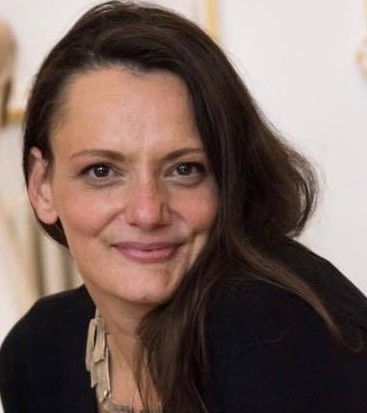Our project, Present(ed)-Encyclopedia of Peace, is designed to build a knowledge base about key events, concepts, initiatives, and women that have been systematically silenced and can be our guideline in today’s times.

Elena Premate
What is the purpose of our memory, and how is memory even constructed in environments where democratic principles simply do not work, or do not exist at all? Where official policies saw the space to determine the subject of remembrance, as well as the way we experience what is presented to us from our history, a group of people saw the space for research work.
Allow us to introduce ourselves:
We are a group of over 20 researchers from different parts of Serbia, of different ages and professions. Among us are students, cultural and social workers, historians, researchers, women in business… We are the Digital Majority and we have gathered around the idea of nurturing memories. In cooperation with Forum ZFD, European Fund for the Balkans, Reconstruction Women’s Fund and Wikimedia Serbia, last October we launched a series of free digital literacy workshops where we learn how to create content on Wikipedia. We chose the fight for peace and the position of women as important values that are unfairly neglected and censored in our society.
In Search of an Audience or To Whom It May Concern
Protection from oblivion is possible in many creative ways, and we have chosen Wikipedia, as the largest repository of knowledge in the world, that pupils and students use as the first point of search.
However, democratic principles do not rule on Wikipedia.
Did you know that only 17% of all biographies on Wikipedia belong to women? Research conducted by Wikipedia shows that gender bias is also present in the editorial community – only 9% of the editorial staff are women. This is reflected in the content of the articles themselves, as 41% of women’s biographies are proposed for deletion.
What is unforgettable, even when everyone has forgotten it? Perhaps that which carries a value in itself that can influence the collective experience.
We decided to disobey, inspired by the Museum of the 90s https://museum90.com/ of our historian and collaborator Sanja Radović. Our project, Present(ed)-Encyclopedia of Peace, is designed to build a knowledge base about key events, concepts, initiatives, and women that have been systematically silenced and can be our guideline in today’s times.
We have written about 200 articles in Serbian and 40 in English so far, all dealing with women and concepts from the anti-war and peace movement from the nineties to today. We continue on, because it was only when we started our research that we realized to what extent ordinary women who started very important initiatives that saved lives were left, at best, in the historical fog.
Civic involvement is important
We have chosen to work in easily accessible open-source platforms to overcome all barriers – from marginalized and minority positions, to gender, age and race to disability. We believe in open dialogue, cooperation and high ethical standards. We learn together and share experiences and knowledge, and as my friend said, “we learn to be better people”.
We want everyone gathered around these importances to become a digital majority. The task of our memory is to weave the motives of those women into the official flow of memory and thus become a visible part of history.
Elena Premate, Content Creator and Activist



Leave A Comment